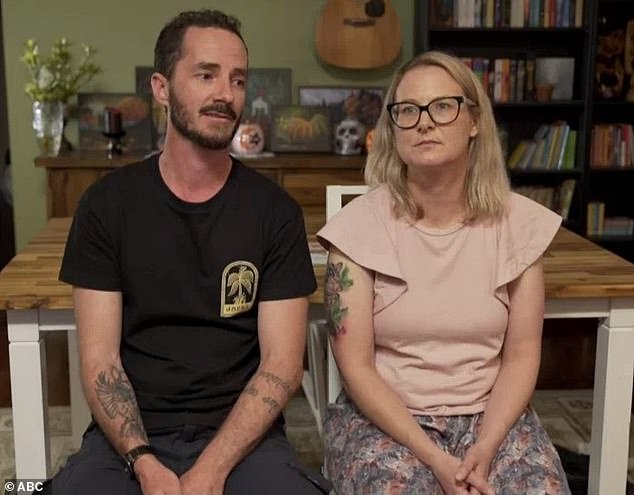Meet the siblings, aged 7 and 10, who have dementia – as their mum reveals the giveaway signs something wasn’t right
A family has opened up about the grief of their two young children being diagnosed with dementia – as they revealed the symptoms many doctors dismissed.
Brisbane siblings Rory and Anna O'Grady, aged ten and seven, started showing signs of dementia at a young age, but were not diagnosed as they believed the condition only affects the elderly.
Like dementia in adults, the condition causes a decline in brain function in children, causing speech, learning, memory and communication problems. The condition is also terminal.
Rory and Anna's mother, Jill O'Grady, said she first noticed her son's slow development when he was just three years old.
She said he had trouble forming sentences and pronouncing words.
Rory's parents say that despite being ten years old, he is cognitively the same as a five-year-old.
Doctors had dismissed his symptoms as 'typical boy behaviour' when he was young, with Mrs O'Grady and her husband saying their son would eventually 'catch up'.
Rory O'Grady (pictured with mother Jill) suffers from childhood dementia. His parents say they started noticing signs when he was just three
But once Rory started school, it was hard to ignore how far behind he was compared to other kids his age.
“What takes a neurotypical child a week to learn would take Rory months,” his father Brendan O'Grady said ABC's 7:30.
'Not just learning numbers and letters, but also learning things like putting on your shirt the right way. I don't think he's ever put his shirt on properly.'
Mrs O'Grady described her son's diagnosis as a 'hard slog'.
She said she was repeatedly turned away by doctors, with parents' concerns “somewhat dismissed.”
“I was even advised that I should see a psychologist myself because I was fixated,” she says.
At the age of six, three years after he first showed symptoms, Rory underwent a urine test that revealed he had Sanfilippo syndrome – one of more than 70 conditions commonly diagnosed as childhood dementia.
Most children with the condition live only nine years and 70 percent die before the age of 18.
“I'm pretty sure if I hadn't found it randomly on Google we still wouldn't have a diagnosis,” Ms O'Grady said.
The O'Gradys' second child, Anna, has also been diagnosed with Sanfilippo, but the symptoms are less pronounced than Rory's.
The couple has another child who does not have the disease.
“We try not to think about the future, we live for now, and for now they are here and they are happy, so we make sure we make the most of every day,” Ms O'Grady said.

Jill O'Grady (pictured with husband Brendan) said their concerns about their son's development were 'dismissed' by doctors
Dr. Nick Smith from the Women's and Children's Hospital in Adelaide said about one in 2,800 live births suffer from childhood dementia, a similar rate to cystic fibrosis.
However, a lack of awareness often leads to the condition being misdiagnosed or ignored.
Megan Maack, who has two children with dementia, is calling for the childhood disease to be added to the National Dementia Action Plan.
She watched as her once bubbly daughter Isla, now 14, slowly lost her ability to speak.
Her son Jude, 12, is following in Isla's footsteps.
Ms. Maack founded the Sanfilippo Children's Foundation and the Childhood Dementia Initiative to fund research and raise awareness of the condition.
“We would like to see children included in the national datasets that track and monitor people with dementia, we would like to see children with dementia taken into account across all services,” she said.
A spokesperson for the federal government said that the publication on child dementia will be added to the plan.
